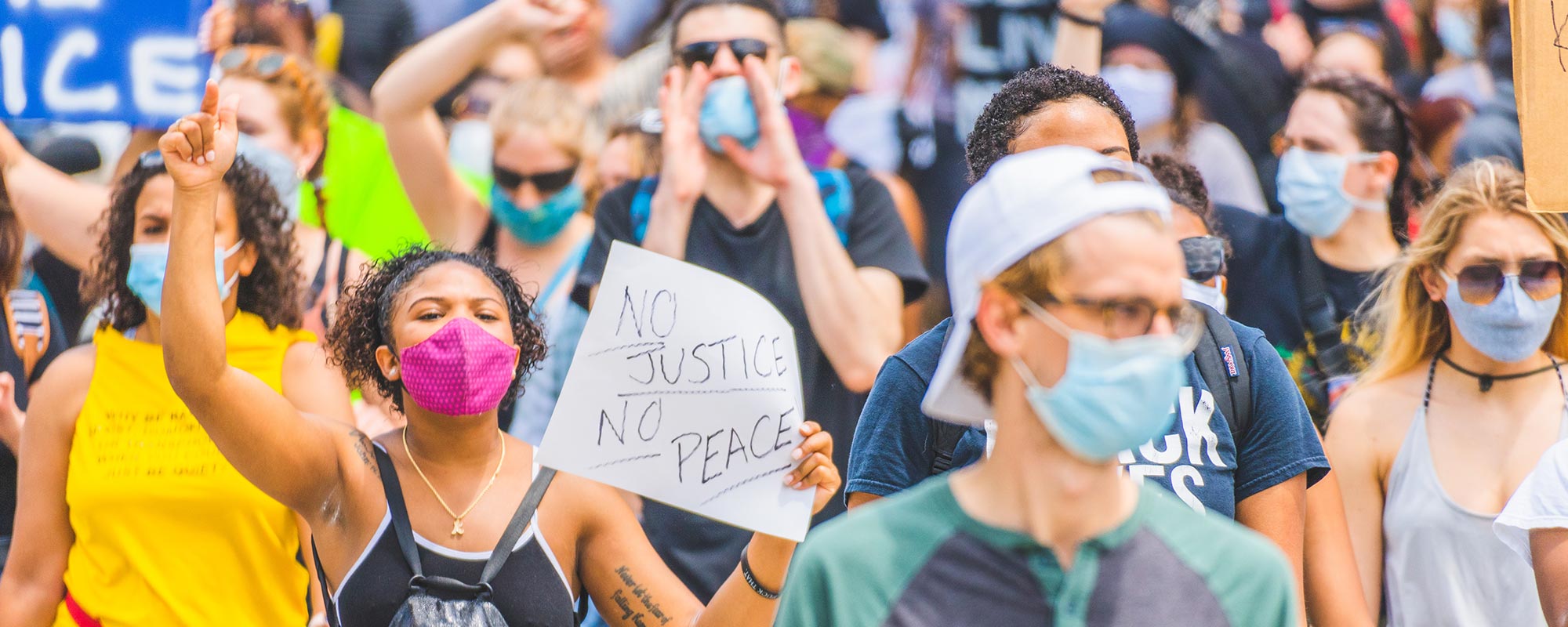Remember protest and dissent? It is hard to believe that just six weeks ago the country was consumed by just that — concerns over rail blockades in support of the Wet’suwet’en opposition to the Coastal Gas Link project. The protests and blockades not only generated debate amongst Canadians, they also highlighted the critical role that freedom of peaceful assembly plays in our democratic system. Those who argued the blockades were a vital exercise of rights – or a necessary deviation from the law – understand that protest can be an effective agent of change. Even those who opposed the blockades and called for the arrest of protesters could appreciate the symbolic importance that large-scale protest plays in getting previously ignored issues onto the national agenda.
A lot has changed in six weeks.
The freedom to assemble in Canada has, for all intents and purposes, been indefinitely suspended. The restrictions on public gatherings that have been put in place across the country don’t only preclude a large-scale protest or blockade. In some jurisdictions it is now illegal for more than five people to gather in public. This includes two of Canada’s largest cities – Toronto and Montreal.
The big picture message – stay home – is clear enough, and it’s important, we’re told gravely, day after day. By and large, people are listening, and, generally speaking, Canadians are staying true to our international reputation of being polite and deferential to government. However, it seems even if you follow all of the rules (if you can keep track of them as they evolve and morph day-to-day) and appreciate the seriousness of the current crisis, we are living in a climate where almost any questioning of the government’s orders may result in being labeled a “covidiot”.
Notwithstanding grumpy politicians’ occasional finger wagging about non-compliance, it is quite remarkable just how many people are doing what we’re told to do by governments. Which brings us back to the importance of the right to protest and the role that peaceful assembly plays in the exercise of this right. This is a moment of unprecedented restrictions of our civil liberties – and it is those very restrictions that have seriously limited our ability to dissent by way of protest. But this doesn’t mean we should become complacent. At a time when we are being asked to make personal sacrifices for collective well-being, we may have very reasonable and important questions about how the current restrictions are affecting those most vulnerable and on the margins of society.
What steps are being taken to protect those in prison from this public health threat? How are the dictates from officials urging us to “stay home” affecting those who are homeless? Are attempts to ensure that the spread of the virus is effectively tracked going to mean unreasonable incursions into our rights to privacy and to avoid government surveillance? What about the chambers of power where government decisions are being made. Where previously open meetings are now taking place via videoconference or in formats that may preclude public participation, how do we make our voices heard?
Some important institutions have a role to play during a crisis, to blow wind into the sails of governments, via journalism and Opposition legislators. But what about you? While we may need to think of creative ways to do so, we should not hesitate to question the limits that are placed on our liberties – to ask tough questions of our elected officials and to insist on coherent answers. We can appreciate that governments are struggling to deal with challenges unlike any they have faced before, while still holding them accountable for the decisions they make. That is what it means to live in a democracy – even one facing a crisis.
Cara Zwibel is the Director, Fundamental Freedoms Program at the Canadian Civil Liberties Association. As counsel, she has appeared before, and clerked at, the Supreme Court of Canada.
About the Canadian Civil Liberties Association
The CCLA is an independent, non-profit organization with supporters from across the country. Founded in 1964, the CCLA is a national human rights organization committed to defending the rights, dignity, safety, and freedoms of all people in Canada.
For the Media
For further comments, please contact us at media@ccla.org.





